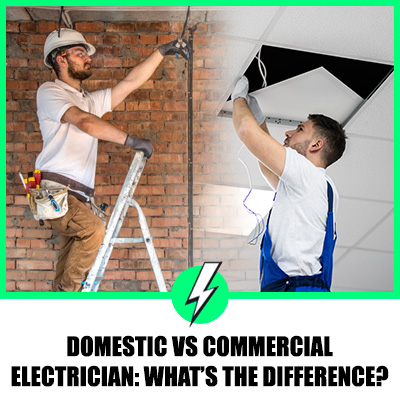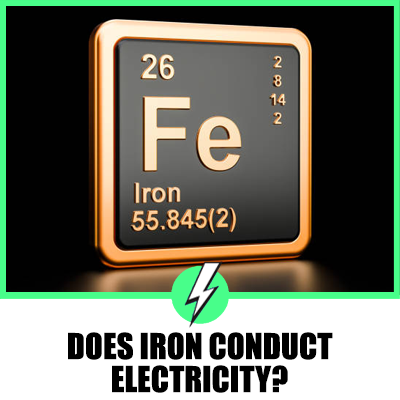Can You Be an Electrician with a Felony?
Finding work can be challenging, especially for those with felonies.
Many fields of work are not open to those with felonies, regardless of the nature or date of the crime and conviction.
However, there are career options for felons who are willing to work hard and acquire new skills.
One such career path that may appeal to felons is that of an electrician.

Contents
Job Description For Electricians
Electricians work with wiring and equipment in installation, upkeep, and repair.
They have a unique set of skills and knowledge, and are essential for keeping homes, offices, and businesses running for their occupants.
Many electricians may work in all environments, while some may specialize in residential or industrial work.
Electricians also play a crucial role in the construction process of a home, office, or store.
They must be ready to assemble and install the wiring systems in new buildings.
These are in turn connected to either light, heat, air conditioning, or refrigeration.
As they do so, they will ensure that all aspects of a buildings electrical systems are up to code.
Becoming An Electrician: Licensing
Becoming an electrician requires being licensed and/or certificated.
These can be earned by going through academic programs at community colleges, for-profit universities, or vocational schools.
These will all differ in cost and length.
Most students, however, will begin acquiring practical experience after no more than two years of coursework and study, and may be able to begin an apprenticeship without first earning an associates degree or license.
The process for licensing differs from state to state, and you should do research to determine the requirements of your state of residence.
In some cases, licenses may be issued by states or counties.
Apprenticeship For Electricians
Because electricians are tradesmen, they begin their careers as apprentices for companies or agencies.
This allows them to work, observe, and learn simultaneously, prior to being allowed to work independently.
Apprentices will also learn how to recognize and solve real world problems.
Apprenticeships will generally last 4-5 years, or roughly 8,000 to 10,000 hours of work.
This may seem like a significant amount of time, but apprentices are paid for the time, and can be eligible for pay increases over the course of their apprenticeship.
They may even qualify for union benefits.
Wages And Growth For Electricians
The Bureau of Labor and Statistics estimates the median annual earnings for an electrician to be $55,190.
This equates to roughly $25 per hour.
A median wage is the exact middle between the top and bottom earners, so entry level workers should expect less.
As they gain experience, the potential for a high income increases.
Experienced electricians may earn up to $100 an hour.
Background Checks And Other Obstacles For Felons
Felons should be prepared to have their backgrounds checked as they enter the field.
Most state or local licensing boards will check for a criminal history, as will apprenticeship sponsors.
Background checks allow candidates to be screened for reliability, problematic behaviors, and to verify details of their past.
Provided that you are honest in disclosing past charges and convictions, most felonies will not be an issue in progressing as an electrician.
Certain felony convictions may prohibit or disqualify you from becoming an electrician, however.
These include fraud, arson, grand theft, or assault and battery.
The details of your conviction may affect your hiring, so it helps to have strong personal references for potential employers to contact.
Job Suitability For Former Felons
Work as an electrician offers opportunities for felons who enjoy working with hands, problem solving, and who can work both independently and as part of a team.
The job does have its dangers, but experienced electricians are well compensated for the risks they take.
Another advantage to the profession is the opportunity to learn as you work.
The profession also encourages entrepreneurship.
The BLS predicts that job growth will be higher than that of other professions in America for numerous reasons.
Skilled electricians are in high demand across a number of industries, and experienced workers may be able to choose the jobs they work based on their interest.
Many contractors are also unionized, meaning your wages and benefits are strongly protected.
Most felons will not find significant barriers to entry into the field.
Specific convictions may disqualify you from employment.
If you are concerned that this might apply to you, expunging or sealing your criminal record is highly recommended.
Can a Felon Get an Electrician License in Florida and Georgia?
The process of obtaining an electrician license varies from state to state.
In Florida and Georgia, the licensing boards will conduct a background check.
If you are honest about your past charges and convictions, most felonies will not prevent you from becoming an electrician.
However, certain felony convictions such as fraud, arson, grand theft, or assault and battery may disqualify you.
What Qualification Do I Need to Be an Electrician?
To become an electrician, you need to be licensed and/or certificated.
This can be achieved by going through academic programs at community colleges, for-profit universities, or vocational schools.
After the coursework, you will begin gaining practical experience and may be able to start an apprenticeship.
How Long Does It Take to Become a Qualified Electrician?
The process to become a qualified electrician generally takes through the stages of student, apprentice, journeyman, and master electrician.
The apprenticeship usually lasts 4-5 years, or roughly 8,000 to 10,000 hours of work.
After an apprenticeship, electricians are entitled to earn the designation of journeyman by passing an exam.
After two years as a journeyman, electricians are then eligible to earn a master designation by passing that exam.
Conclusion
Having a felony does not automatically disqualify you from becoming an electrician.
With the right training, attitude, and transparency about your past, you can pursue a career as an electrician.





